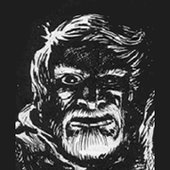Ignoring what everyone else above me has said...

Design is a process in which one uses in order to find a creative solution to a problem. For example, corporate identity and logo design. The graphic designer must: 1) research the market, the company, and its consumers, 2) sketch a lot of designs and figure out what would work and how it would work, and 3) create the logo in an illustration application, perfect it, and then market and sell it to the client. (BASICS) These aren''t set in stone but the ideal designer or design firm does this and more. There''s plenty of books on design which explain what design is and what design isn''t, but I''ll leave that job to the books.
Now, game design, falls into the same category as graphic design, branding and logo design, web design, etc. It is a process in which one uses in order to find a creative solution to a problem. This is where your objective and mission statements come into play. What goal do you want to accomplish with this game (or design)?
Many fail to recognize that the professional game industry is big business dealing with millions and millions of dollars. Well, the team behind the production and design of the game will not see most of that money, but the publisher will. When you design a game, write your game design document as you would write a business plan. If you don''t know how to write a business plan, I highly recommend you learn. Most colleges offer a Small Business Management or similar course which deals with developing a business plan.
Your knowledge of developing a business plan will have a positive substantial effect on your game design document.
Sorry, I answered the original question and then some... I hope you don''t mind.




